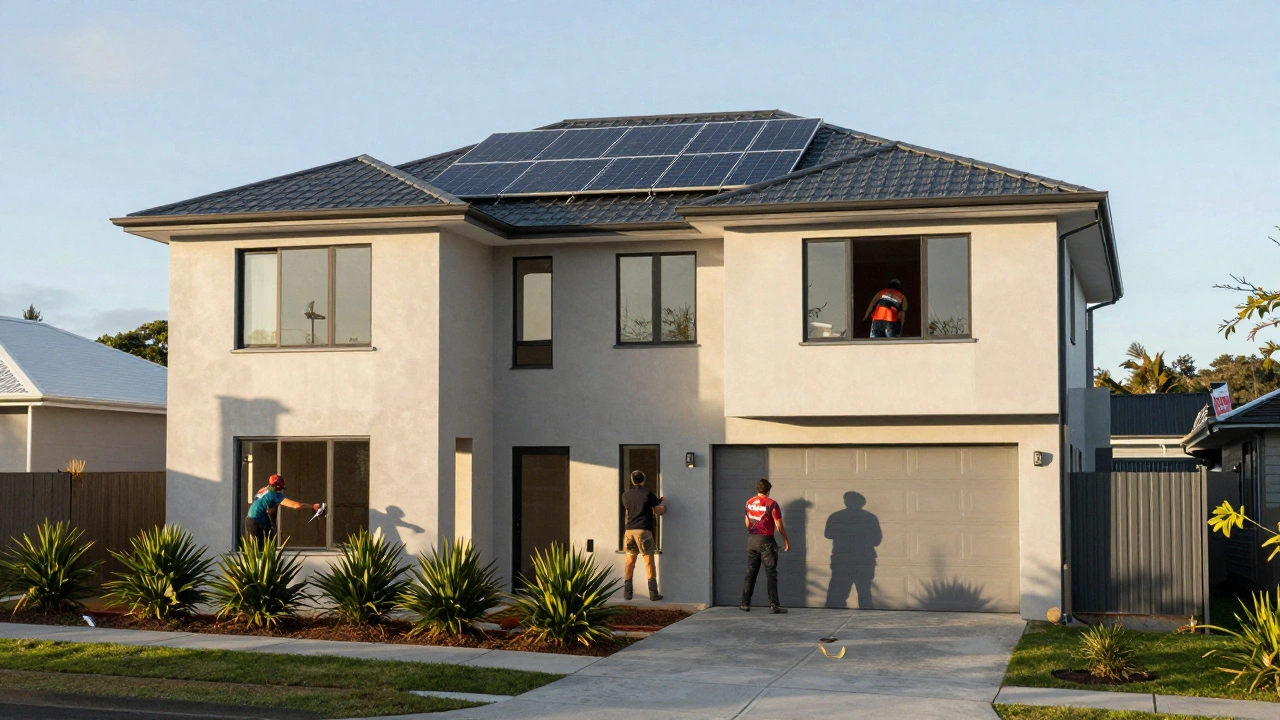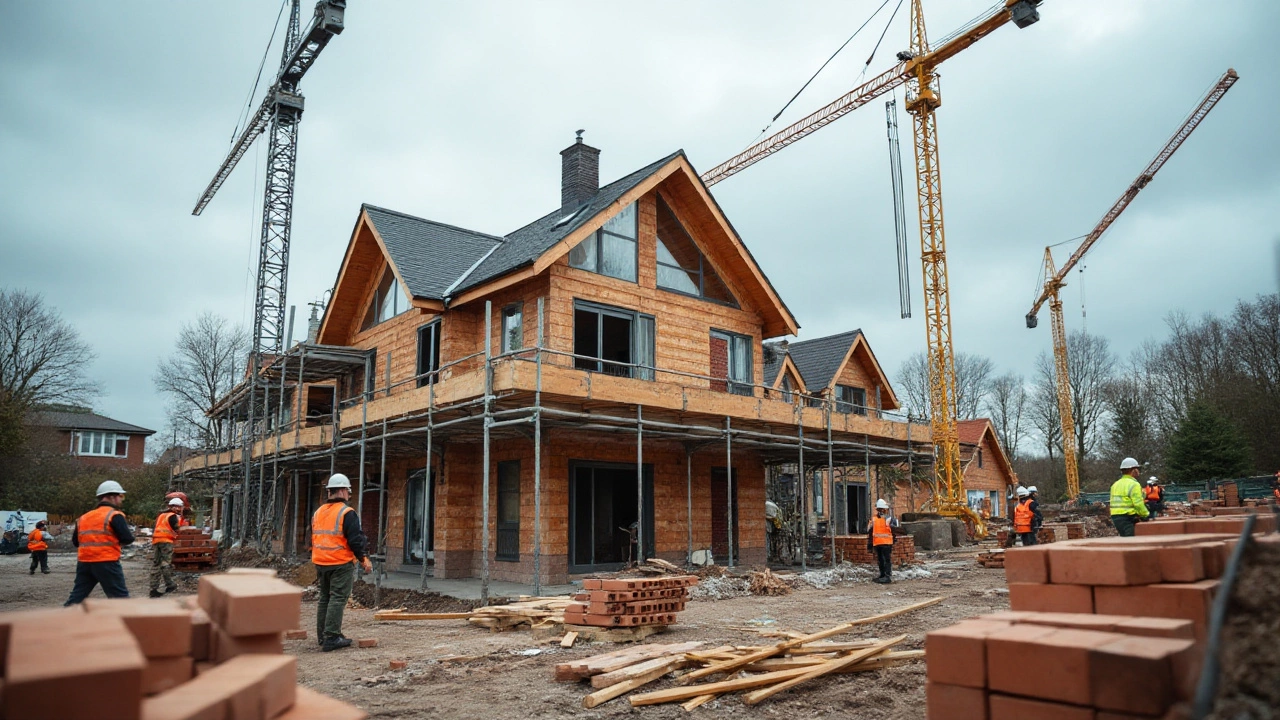Home Construction Costs – What You Need to Know Before Building
Thinking about building a new house? The biggest question on most people's minds is the price tag. You might have heard numbers like £150,000 or £300,000, but those figures can swing wildly depending on where you live, what style you pick, and how you manage the project. This guide breaks down the main cost drivers, shows you how to get a realistic estimate, and offers practical tricks to stay on budget.
Biggest Cost Drivers
First, land price. In the UK, buying a plot can cost as much as the house itself, especially in high‑demand areas. Next comes design and planning – architectural fees, structural engineer checks, and planning permission can add 5‑10 % to the total. Then there are the core building elements: foundations, walls, roof, and finishes. A solid foundation (think waterproofing and crack repair) often starts at £5,000 for a modest size, while a premium roof can push another £10,000‑£15,000 depending on material. Windows, doors, insulation, and internal fittings each bring their own line items.
Labor is another big chunk. Skilled tradespeople charge per hour or per job, and rates vary between regions. A typical build might spend 30‑40 % of the budget on labor. Don’t forget the hidden costs: site access, temporary utilities, waste disposal, and the inevitable change orders when you decide you want a bigger kitchen or a different layout halfway through.
Smart Ways to Keep the Budget in Check
Start with a detailed budget spreadsheet. List every item you can think of, assign a realistic cost, and add a 10‑15 % contingency for surprises. Get at least three quotes for major trades and compare what’s included – the cheapest quote often skips important warranties or insurance.
Choose cost‑effective materials without compromising quality. For example, a metal roof can be cheaper than slate but still last 30‑40 years. Look at the “Cheapest Ways to Roof a House” article for material options and price breakdowns. Similarly, pre‑fabricated wall panels can shave weeks off labor time and reduce labor costs.
Plan the build in phases. If your budget is tight, finish the shell first (foundation, walls, roof) and add interior finishes later. This lets you move in sooner and spread out the expense.
Consider a standard design rather than a custom one. Custom floor plans often require extra engineering work and bespoke components, driving the price up. A tried‑and‑tested layout, like those found in many “new build” developments, can cut both design fees and construction time.
Finally, keep communication open with your contractor. Regular site visits, clear change‑order procedures, and a written schedule help avoid costly delays. If you spot a potential problem early – like a foundation crack that could need costly repair – you can address it before it becomes a major expense.
Building a home is a big investment, but with a clear picture of the main cost drivers and a few smart budgeting tricks, you can keep the project under control and avoid nasty surprises. Use this guide as a checklist, talk to local professionals, and keep your spreadsheet up to date – the more you know, the more confident you’ll feel when you hand over that final payment.

Is it currently cheaper to build or buy a home in 2026?
Jan 22, 2026, Posted by Damon Blackwood
In 2026, building a new home in New Zealand costs more upfront than buying an existing one-but offers long-term savings on energy, repairs, and maintenance. Here’s how to decide what’s right for you.
MORE
Understanding the Rising Costs of Building a Home
Dec 4, 2024, Posted by Damon Blackwood
Building a house has become increasingly expensive due to a combination of factors such as material costs, labor shortages, and regulatory requirements. Analyzing the intricate dynamics of the housing market provides insight into why these expenses continue to rise. This article seeks to demystify the complexities behind home construction costs while offering practical advice for those looking to build their dream homes. By understanding these challenges, prospective homeowners can better navigate the construction process. Delve into the reasons behind the financial burdens of building new homes.
MORESEARCH HERE
Categories
TAGS
- foundation repair
- commercial construction
- construction
- new builds
- home improvement
- home renovation
- bathroom renovation
- construction materials
- residential construction
- building codes
- home foundation
- building types
- renovation tips
- construction differences
- contractor
- building materials
- foundation cracks
- home construction
- architectural services
- building contractor